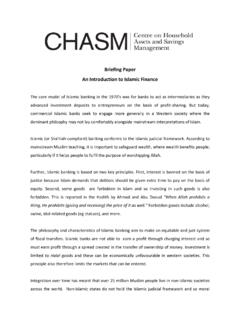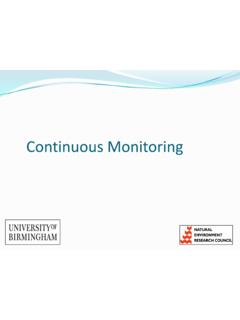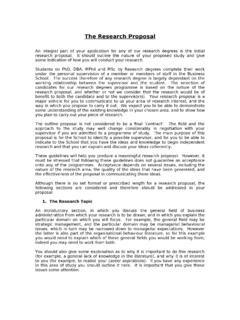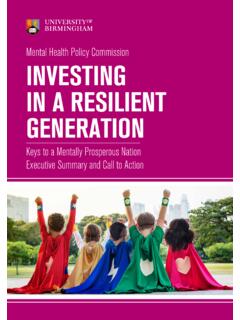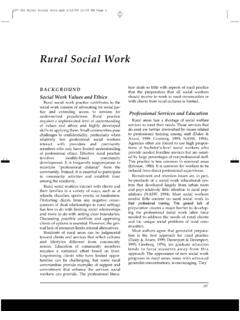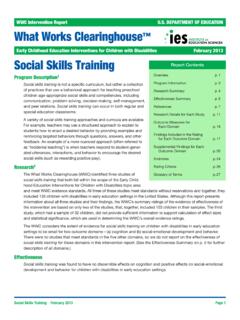Transcription of LEADERSHIP IN SOCIAL WORK - University of Birmingham
1 Haworth, Miller & Schaub LEADERSHIP in SOCIAL work (2018) 1 LEADERSHIP IN SOCIAL work : (and can it learn from clinical healthcare?) Developed by: Simon Haworth Dr Robin Miller Dr Jason Schaub December 2018 Haworth, Miller & Schaub LEADERSHIP in SOCIAL work (2018) 2 Foreword As a profession, SOCIAL work faces unprecedented pressures. SOCIAL care services, which SOCIAL workers help to deliver, have been subject to many years of central government cuts. In addition, demand for services is rising, placing huge and difficult to manage burdens on SOCIAL workers. Local authorities struggle to recruit and retain enough SOCIAL workers, and the profession continues to suffer from negative public perceptions.
2 In this context, it is vital that we have confident and effective SOCIAL work leaders - those who can inspire and lead teams and organisations in complex, multi-agency SOCIAL care systems. This paper s authors acknowledge these challenges facing SOCIAL work , but contend that more could be done to encourage and support better SOCIAL work LEADERSHIP . They argue that compared to other relevant professions, such as nursing and medicine, there is an insufficient investment in LEADERSHIP at all stages in a SOCIAL workers career; what they call the cycle of missing LEADERSHIP . Yet good SOCIAL work LEADERSHIP is hugely important to the effectiveness and impact of SOCIAL care services.
3 In papers on strengths-based SOCIAL work , SOCIAL Care Institute for Excellence (SCIE) discusses the importance of confident and skilled SOCIAL work LEADERSHIP to embedding strengths-based practice. In a tool for the What Works Centre for Children s SOCIAL Care, which SCIE is helping to establish, we identify excellent SOCIAL work LEADERSHIP as a vital feature of evidence-minded organisations. This paper provides a helpful tour of a range useful frameworks for conceptualising SOCIAL work LEADERSHIP , identifies ways in which SOCIAL work LEADERSHIP can learn from clinical LEADERSHIP , and highlights gaps in the evidence and contributions to the professions LEADERSHIP development.
4 The paper also presents a new and helpful definition of LEADERSHIP in SOCIAL work . This paper makes an important contribution to the debate, but the authors are clear that it is just a first step in what is hoped to become a productive dialogue between academics, SOCIAL workers, regulators and government. Certainly, at a roundtable chaired by SCIE s Chair Paul Burstow, used to inform the paper, the SOCIAL work leaders in attendance were keen for the paper to spark a much wider debate. The huge challenges facing SOCIAL work , and SOCIAL care more generally, are unlikely to abate in the near future. In this context, fostering excellent SOCIAL work LEADERSHIP will be more important than ever, and this paper kicks starts what we hope is a fruitful debate that leads to real change.
5 Ewan King, Chief Operating Officer, SCIE Haworth, Miller & Schaub LEADERSHIP in SOCIAL work (2018) 3 Introduction LEADERSHIP is recognised as an enabler of well-functioning organisations. Within SOCIAL work , well-led services and professions will contribute to people, families and communities experiencing positive and enabling support that improves their life opportunities and wellbeing. LEADERSHIP is also highlighted in reviews of what has not worked well, either through focussing on the wrong objectives or being noticeable by its absence. SOCIAL work with adults, and with children and families, has professional status, designated legislative responsibilities, central roles in safeguarding the most vulnerable, and an institutional and democratically elected organisational home.
6 Despite these foundations, SOCIAL work in England often presents as a profession in crisis, unsure of its distinctiveness, strengths and contribution. This corresponds with SOCIAL work being undervalued by other professions and overlooked by society in general. It is therefore crucial that SOCIAL work has a strong sense of its purpose with strong LEADERSHIP to develop and sustain the profession into the future. This working paper seeks to add to debates about SOCIAL work LEADERSHIP within England. It begins by tracing out definitions, models and research evidence. It is noteworthy that much (but not all) of the SOCIAL work LEADERSHIP literature used in this paper originated from the United States of America, not the UK, raising questions about the significance given to LEADERSHIP within the UK SOCIAL work community and its researchers.
7 The current context of SOCIAL work in England is considered as the backdrop against which LEADERSHIP must be realised. The core elements of LEADERSHIP in SOCIAL work are analogous to those in other professions (Sullivan 2016), and thus there are grounds to the argument that SOCIAL work should not see itself as unique in terms of how LEADERSHIP is conceptualised and enacted. This opens the door to learning from other sectors. Healthcare has recognised the potential benefits of LEADERSHIP for many decades with active support from policy and practice. This paper concludes by highlighting the main areas for debate and setting out ways in which these could be positively addressed.
8 Haworth, Miller & Schaub LEADERSHIP in SOCIAL work (2018) 4 LEADERSHIP and SOCIAL work Definitions of LEADERSHIP LEADERSHIP in SOCIAL work is poorly defined. This applies within England, the UK and further afield, both within children and families and adults fields, and with no coherent model or definition systematically employed or endorsed (Hafford-Letchfield et al, 2014; Sullivan, 2016; Lawler & Bilson, 2013). As Lawler (2007) states, we are still in the position of having no generally accepted definition of LEADERSHIP or what it might be within SOCIAL work (p. 133). A further complication is that the knowledge base is mostly conceptual and lacks a robust empirical basis (Hafford-Letchfield et al, 2014).
9 Meanwhile, the importance of effective LEADERSHIP has been highlighted by a range of scholars and reports, including the two most prominent reviews of child protection practice in England. Almost ten years ago Laming (2009) reminded us that serious case reviews consistently refer to the importance of effective LEADERSHIP . In her seminal review of child protection, Munro (2011) stated that LEADERSHIP will be needed throughout organisations to implement the review s recommendations successfully, especially to help move from a command-and-control culture encouraging compliance to a learning and adapting culture ( ).
10 These underscore the importance ascribed to LEADERSHIP for improving SOCIAL work practice. However, the context of contemporary SOCIAL work can be understood as inhibiting the development of confident and effective LEADERSHIP , through managerialism, bureaucratic dominance, or cultures of fear and blame (Hafford-Letchfield et al, 2014; Rogowski, 2012; Lawler & Bilson, 2013; Sullivan, 2016). Confident and effective LEADERSHIP is complex, daunting and multi-faceted; as a result, managerialism can be seen as a defensive response to such complexity and uncertainty, steering SOCIAL work organisations towards expediency, efficiency and rigid structures (Lawler, 2007; Rogowski, 2011).





